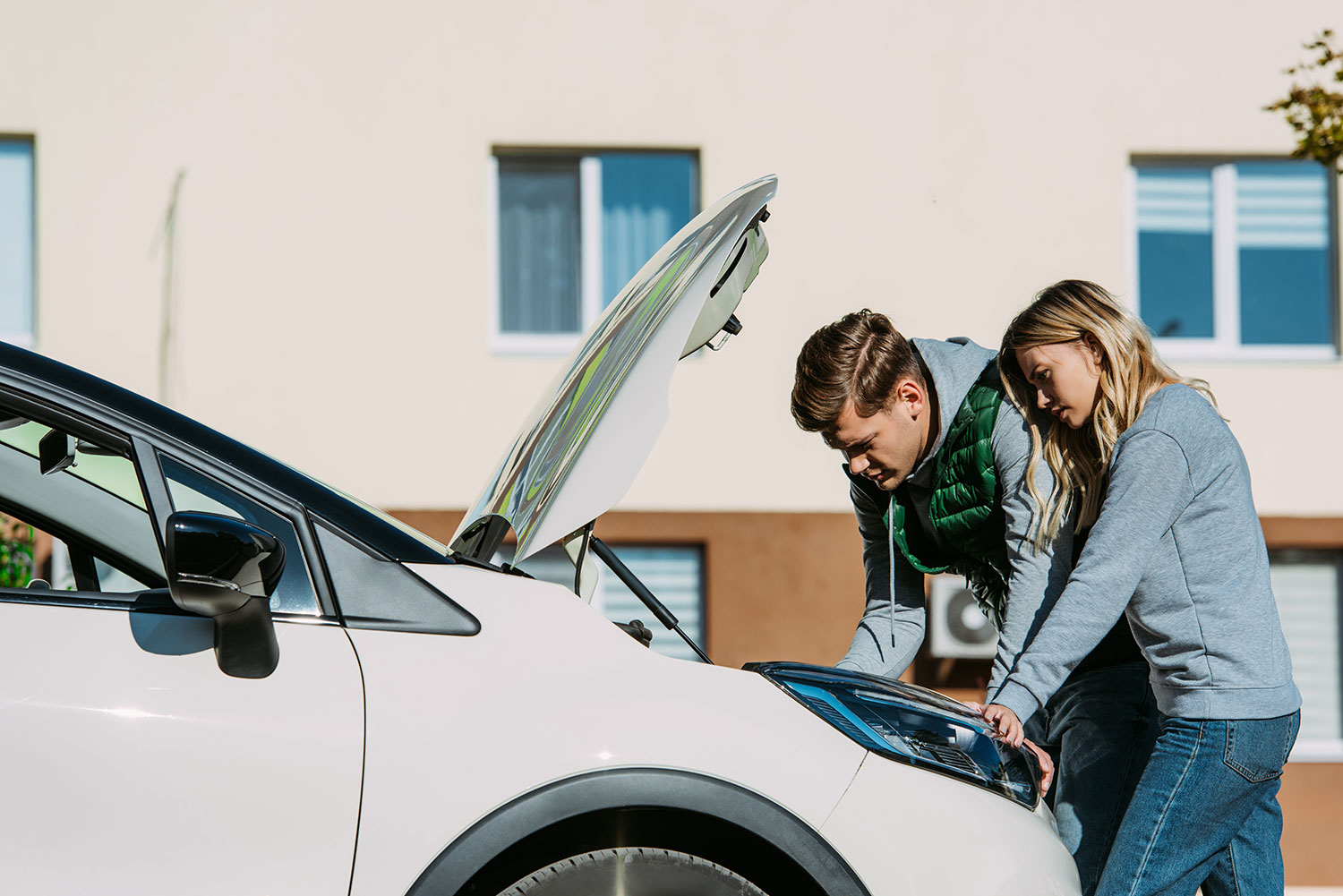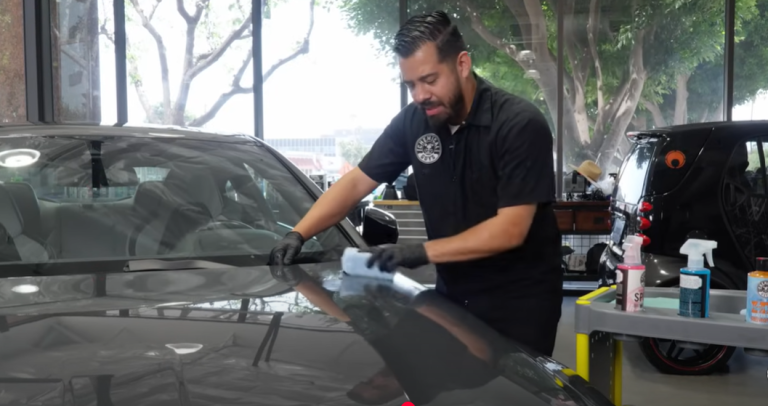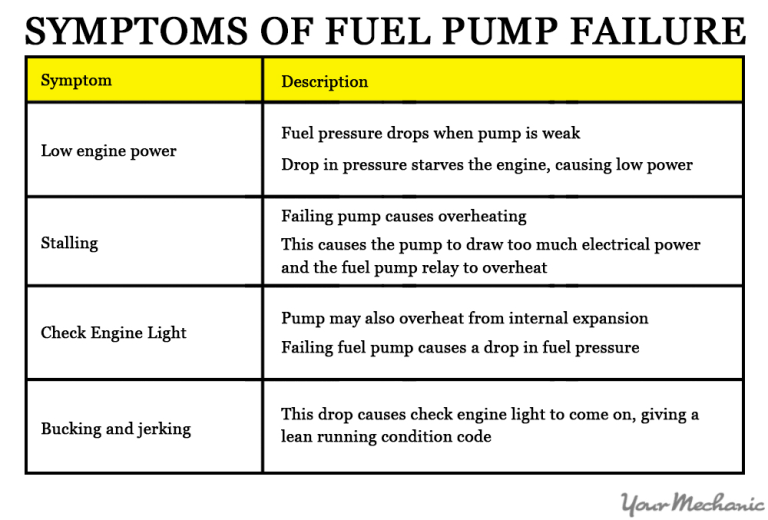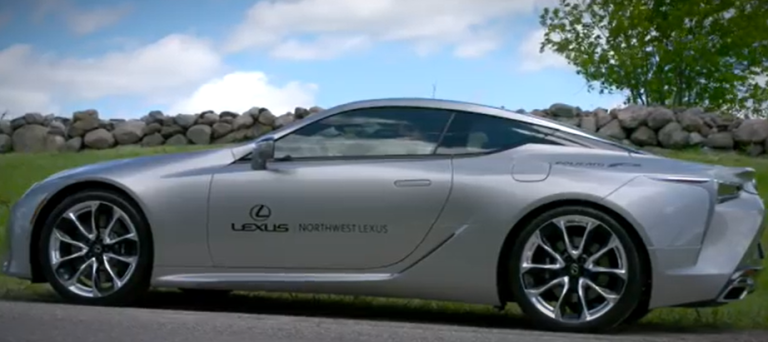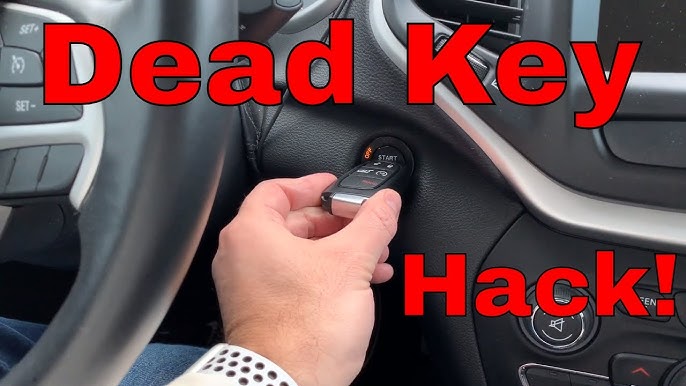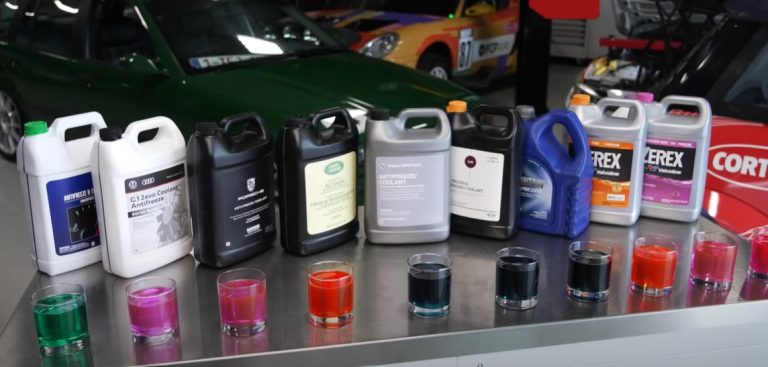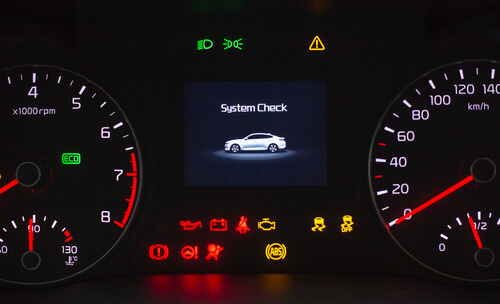Car Won’t Start But Lights Come on Clicking Noise: Fix Tips
If your car won’t start but the lights come on and you hear a clicking noise, the most likely cause is a weak or dead battery. Other possible issues include a faulty starter motor, poor battery connections, or a bad ignition switch. Check battery terminals and try jump-starting.
Frustrating, right? You’re not alone. This is a common issue that can leave you feeling stranded and stressed. But don’t worry; understanding why this happens can save you time, money, and a whole lot of headaches. We’ll dive into the reasons behind this annoying problem and guide you through simple solutions to get your car back on the road.
So, before you panic and call a tow truck, read on. Discover how you can troubleshoot this issue yourself and regain control over your driving plans.

Credit: www.youtube.com
Car Won’t Start But Lights Come on Clicking Noise
Common Causes
Experiencing a car that won’t start but still has lights can be perplexing. You hear a clicking noise, yet the engine refuses to engage. Understanding the common causes can help diagnose the issue and find a solution. Below are some frequent reasons why this might happen.
Dead Battery
A dead battery is the most common cause. Lights may still operate because they require less power. The clicking noise indicates the starter motor isn’t receiving enough electricity to turn over the engine. Recharge or replace the battery to solve this issue.
Read more: How to Jump a Car with Jumper Cables? The Complete Guide
Faulty Starter Motor
The starter motor might be faulty. It plays a crucial role in turning the engine. If the motor is damaged, it may produce a clicking noise but fail to start the vehicle. A mechanic can test and replace the starter motor if necessary.
Loose Or Corroded Connections
Loose or corroded battery connections can interrupt power flow. Even with lights on, the starter may not function properly. Inspect the terminals for corrosion or loose fittings. Clean and tighten connections to ensure consistent power delivery.
Bad Solenoid
The solenoid can cause issues if malfunctioning. It bridges the gap between the battery and starter. A clicking noise can indicate a bad solenoid. Replacing it can restore normal operation.
Issues With Alternator
An alternator problem can prevent proper battery charging. If the alternator fails, the battery may not have enough charge to start the engine. Check the alternator for faults and replace if needed.
Battery Issues
Car won’t start, yet lights are on? Clicking noise likely signals battery trouble. Dead battery struggles to power the engine despite lights working. This clicking often means insufficient battery charge to start the car. Consider checking battery connections or replacing the battery to solve the issue.
Having your car refuse to start can be a real headache, especially when the lights come on and there’s just a clicking noise. Often, this scenario points to battery issues. Understanding how your car battery functions and knowing how to troubleshoot can save you time and frustration. Let’s dig into what you need to know about battery problems and how to tackle them.
What Causes Battery Issues?
Several factors can lead to battery problems. It might be something as simple as leaving your headlights on overnight. Extreme weather conditions, especially cold, can also drain the battery’s charge. Sometimes, it’s a matter of a corroded battery connection, which prevents proper power flow. Recognizing these causes can help you act quickly.
Read more: Car Struggles to Start After Sitting: Quick Fixes
Signs Your Battery Needs Attention
When you hear a clicking noise but the engine doesn’t start, it’s a red flag. Your dashboard lights might illuminate, but the engine remains silent. You might notice dimming headlights or a slow crank. These are tell-tale signs your battery might be struggling. Pay close attention to these signals to avoid being stranded.
Simple Steps To Troubleshoot Battery Problems
First, check your battery terminals. Are they clean and secure? Sometimes a quick cleaning or tightening does the trick. Next, consider using a multimeter to measure the battery’s voltage. Ideally, it should be around 12.6 volts when the car is off. If it’s lower, it’s time to recharge or replace the battery. You can also jump-start your car and see if that resolves the issue temporarily.
Preventive Measures To Keep Your Battery Healthy
Regularly inspect your battery for corrosion and clean it with a mixture of baking soda and water. Ensure connections are tight. Avoid leaving lights on when the engine is off. If your battery is over three years old, have it tested annually. These practices can prolong your battery’s life and keep your car starting smoothly.
When To Seek Professional Help
If your battery frequently dies or doesn’t hold a charge, it might be time for expert advice. A mechanic can test the entire electrical system to identify underlying issues. Is it worth investing in a new battery, or is there a larger electrical problem at hand? Seeking professional help can provide clarity and prevent further complications. Battery issues can be frustrating, but they’re often solvable with a little know-how. Next time your car hesitates to start, consider these insights. Have you ever faced a similar problem? How did you resolve it? Share your experience in the comments below!
Starter Motor Problems
Experiencing a clicking noise when trying to start your car can indicate starter motor issues. Lights may still function, but the engine fails to turn over. This problem often stems from a faulty starter solenoid or worn-out motor components, requiring a professional inspection or repair.
When your car won’t start but the lights come on and you hear a clicking noise, it can be frustrating. This scenario often points to starter motor problems. Understanding the role of the starter motor is crucial in diagnosing and fixing the issue. The starter motor is responsible for cranking the engine, and when it fails, your car won’t start even though other electrical components like lights might still work.
What Is A Starter Motor?
The starter motor is a small device that initiates the engine’s operation. It draws power from the battery to turn the engine over. If it’s faulty, you might hear a clicking noise instead of the engine starting. Imagine trying to start a conversation but only hearing static; that’s what your engine experiences when the starter motor fails.
Common Symptoms Of A Faulty Starter Motor
A clicking noise is a classic sign of starter motor issues. This noise occurs when the starter solenoid engages but the motor doesn’t turn. You may also experience intermittent starting, where the car starts occasionally but not consistently. Another symptom is a whirring sound, which means the motor is running but not engaging the engine.
Causes Of Starter Motor Problems
Starter motors can fail due to wear and tear. Over time, the internal components can degrade, affecting performance. Poor electrical connections can also prevent the motor from receiving adequate power. Additionally, a faulty solenoid can stop the starter from engaging the engine, leaving you stranded.
How To Diagnose Starter Motor Issues
Start by checking your battery. A weak battery can mimic starter problems. Ensure all connections are clean and tight. If the battery is fine, listen for the clicking noise and check for signs of wear on the starter. You might also consider getting a mechanic to test the starter motor directly.
Solutions For Starter Motor Problems
Replacing a faulty starter motor is often the best solution. However, you could try cleaning connections first. Tightening any loose wires might solve the problem temporarily. If you’re mechanically inclined, consider testing the solenoid and replacing it if needed.
Preventing Starter Motor Issues
To avoid starter motor problems, maintain your car regularly. Check electrical connections during routine inspections. Keep your battery in good condition and replace it when necessary. Regular maintenance can save you from costly repairs and unexpected breakdowns. Have you ever had a starter motor issue? How did you resolve it? Sharing your experiences can help others facing similar challenges.
Ignition System Faults
Experiencing a car that won’t start but lights up and makes a clicking noise often points to ignition system faults. This issue might involve a weak battery or problems with the starter motor. Identifying the exact cause quickly can help prevent further complications.
When your car won’t start but the lights come on and there’s a clicking noise, it can be both confusing and frustrating. The issue might not be as straightforward as a dead battery, especially when your lights are working. One possible culprit is the ignition system. Understanding how the ignition system works can give you a clue about why your car won’t start and how to fix it.
Ignition Coil Problems
The ignition coil is crucial for turning your engine over. It transforms the battery’s voltage into a spark that ignites the fuel. If it fails, your engine might not start, even if your lights are bright and functional. A clicking noise could indicate that the ignition coil is not sending the necessary spark. This issue often requires professional diagnostics to confirm and fix. However, checking for physical damage or corrosion can be a helpful first step.
Faulty Spark Plugs
Spark plugs may seem small, but they play a big role in starting your engine. If they are worn out or damaged, they can’t ignite the fuel-air mixture properly. This can prevent your engine from starting, even though other electrical components are working fine. Consider replacing your spark plugs if they haven’t been changed in a while. It’s a relatively simple task that might solve your problem. Have you ever considered how often you should replace them?
Issues With The Ignition Switch
The ignition switch initiates the electrical process that starts your engine. If it’s faulty, the engine won’t start even if all other systems are go. You might hear a clicking noise as the switch fails to connect properly. Testing the ignition switch can be tricky. A professional mechanic can help diagnose the issue. Have you noticed any other symptoms, like difficulty turning the key?
Starter Motor Failures
The starter motor is responsible for cranking your engine. A clicking noise often indicates a problem here, especially if the motor is struggling to turn the engine over. Sometimes, tapping the starter motor can temporarily solve the issue. However, this is only a short-term fix, and a replacement might be necessary. Are you prepared to recognize the signs of a failing starter motor? Understanding these potential ignition system faults can help you diagnose why your car won’t start. Addressing these issues not only gets you back on the road but also saves you from unexpected breakdowns.
Diy Troubleshooting Tips
Experiencing a clicking noise when the car won’t start can be frustrating. Check the battery connections; they might be loose or corroded. Inspect the starter motor; it could be faulty and require replacement.
When your car won’t start but the lights come on with a clicking noise, it can be frustrating. Many drivers have experienced this common issue. The good news is, you can often troubleshoot the problem yourself before calling a mechanic. Here are some simple DIY troubleshooting tips to help you get back on the road.
Check The Battery Connections
Start by inspecting the battery connections. Loose or corroded terminals can interrupt the flow of electricity. Ensure the clamps on the battery posts are tight. If they’re not, tighten them with a wrench. If you spot corrosion, clean it off with a mix of baking soda and water using an old toothbrush.
Test The Battery Voltage
A multimeter can help you check if your battery is the issue. Set it to DC volts, and touch the red probe to the positive terminal and the black to the negative. A healthy car battery should read around 12.6 volts. If the reading is significantly lower, the battery might need charging or replacement. Have you ever ignored a low battery reading only to get stuck later? It’s an easy mistake, but one that can leave you stranded.
Inspect The Starter Motor
The clicking sound often indicates a starter motor issue. Listen closely as you try to start the car. If the clicking is rapid, it might mean the starter solenoid is engaging but not enough power is reaching the motor. Consider tapping the starter gently with a tool to see if it makes a difference. This can sometimes free up a stuck component.
Evaluate The Alternator
If your battery is fine, the alternator might be failing. When the alternator is faulty, it doesn’t charge the battery properly. Check for signs like dimming lights and slow electrical accessory performance. Would you trust your car to start after noticing these symptoms? It’s wiser to get the alternator checked promptly.
Look For Blown Fuses
A blown fuse can disrupt the starting system. Locate the fuse box under the dashboard or hood. Pull out the starter fuse and inspect it. If the metal strip inside is broken, replace it with a new fuse of the same rating. Recount a time when a simple fuse replacement saved the day. It’s a quick fix you can do without expert help.
Consider The Ignition Switch
A faulty ignition switch can prevent your car from starting. Turn the key in the ignition and observe any unusual behavior. If the dashboard lights flicker or fail to illuminate, the switch might be failing. Ask yourself, how often do you overlook the ignition switch as a potential problem? It’s a small component but crucial for starting.
Check The Fuel Supply
Ensure your car has enough fuel. It sounds basic, but it’s often overlooked when troubleshooting. Listen for the fuel pump when you turn the key to the “on” position. A quiet pump might indicate an issue. Have you ever run out of fuel unexpectedly? Always keep an eye on the gauge to avoid this simple oversight. These DIY troubleshooting tips can help you diagnose why your car won’t start. By addressing these areas, you might just solve the problem without professional help.
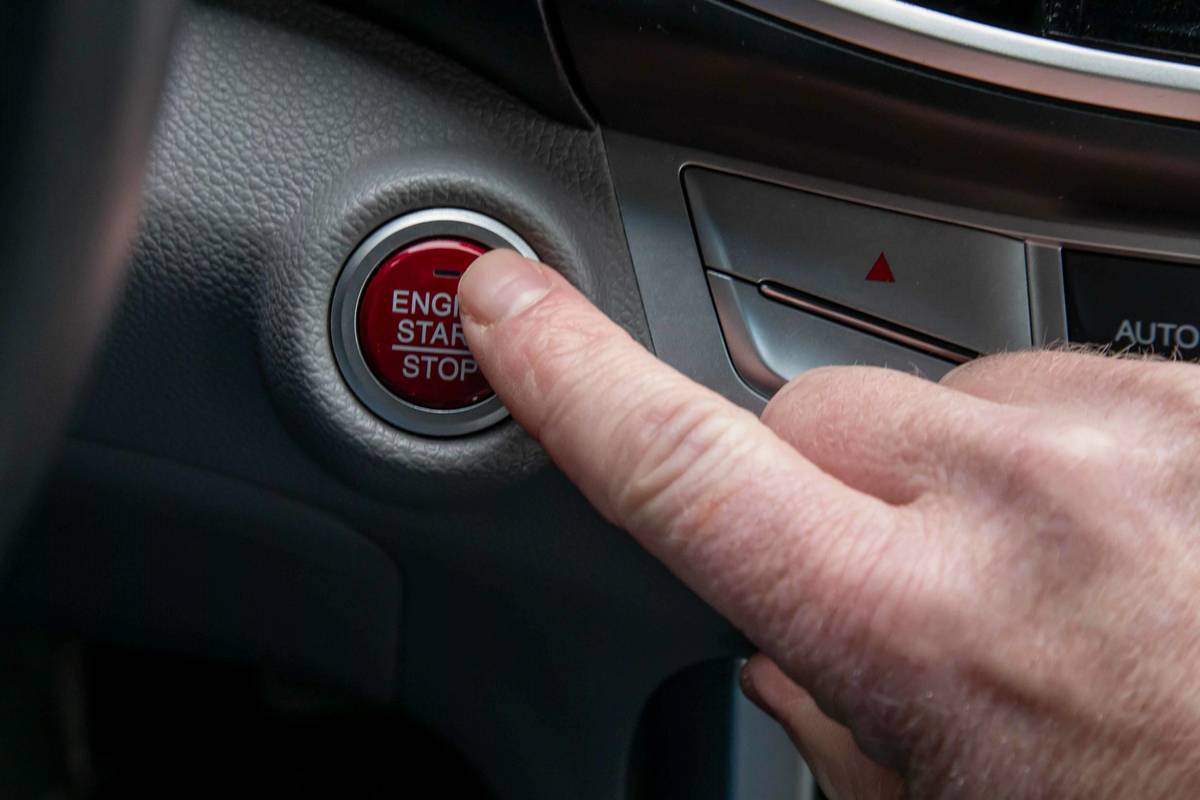
Credit: www.cars.com
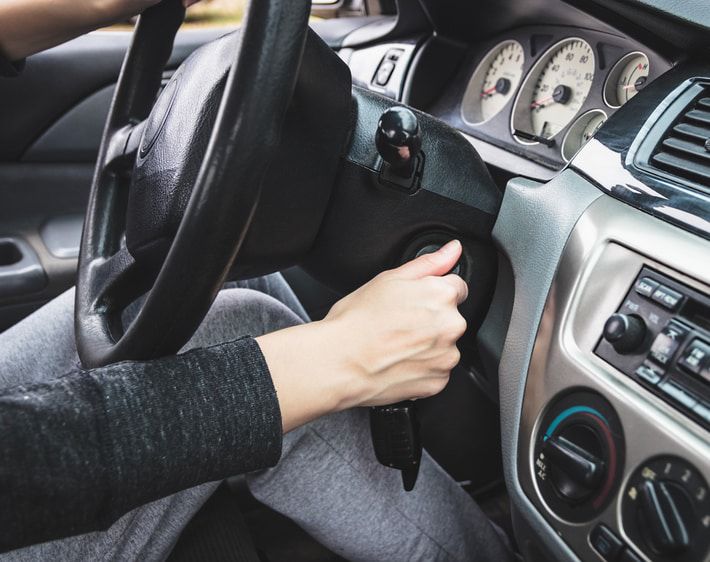
Credit: www.firestonecompleteautocare.com
Frequently Asked Questions
Why Does My Car Make A Clicking Noise When Starting?
A clicking noise often means a battery issue. The battery might be weak or dead, or the connections could be loose.
Can A Bad Starter Cause Clicking Sounds?
Yes. A faulty starter can cause clicking. It might not engage the engine properly. This needs checking.
How Can I Fix My Car’s Clicking Noise?
First, check the battery and its connections. Clean terminals, tighten connections, or replace the battery if needed.
Conclusion
Understanding the reasons behind a car that won’t start can help. Often, the battery is the main issue when lights come on with clicking noises. A weak battery or loose connections might be the culprits. Listening for the clicking noise can reveal important details.
Always check the battery and connections first. Simple checks can solve many car starting problems. Address these issues promptly to avoid bigger troubles. Regular maintenance ensures smoother rides. Always be prepared with the right tools and knowledge. Keep your car in good shape and enjoy a worry-free drive.

